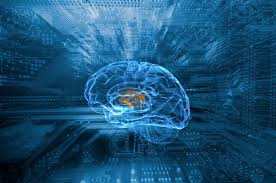Source: forbes.com
Among fictional buzzwords like “telepathy,” “cyberspace,” “parallel universe,” and so on – what’s undeniably popular and real is “AI” — artificial intelligence. The idea that a machine can exhibit the same level of intelligence and sentience as a human being has captured much interest today. This idea has increasingly become popular in the workplace: The World Economic Forum forecasts that due to technologies like machines and algorithms, “133 million new jobs [are] expected to be created by 2022 compared to 75 million that will be displaced.” A report published by Tractica, showed that AI revenue could grow from $643.7 million in 2016 to $36.8 billion by 2025.
These billion-dollar facts could leave a surprisingly awakening question — is the future going to be AI-oriented, and will humans be left out of it? This ever-continuing human question has left many of us feeling dread in this uncertain world. Nonetheless, the latest emerging AI trends and developments have presented a consideration for humankind: Will AI truly “colonize” the entire Cosmodrome?
Now that tiny robots are capable of extracting tooth plaque and computers can defeat professional human players at strategy games, the question of world domination certainly remains — in a sense.
Will Augmented Intelligence Replace Humans Or Enhance Jobs?
The origin of job uncertainty with the rise of AI and technology in general is a matter that goes way back in time. Mobile phone devices with smart technology were a new concept to human beings — but as time passed, they increasingly became a common device. Similarly, AI products and solutions like the virtual AI assistants Cortana, Google Home, and Siri have become a part of our everyday lives and are likely here to stay.
AI can also be a powerful working tool in many current business scenarios. Fundamentally, while the human brain works on higher-level tasks, continuous tasks can be fed to AI, like simplifying complexities in data that enable humans to process information faster. For example, robotic process automation (RPA) software bots can execute a sequence of commands to define a set of business rules and replace repetitive clerical tasks.
Businesses can align their business processes and make them simpler with the adoption of AI. The internet of things (IoT) is a new wave that has created 360-degree interaction between humans and machines. One of the backbones of IoT is the AI capabilities that enable IoT devices to accurately optimize the utilization of effort and time.
I expect that the human-machine convergence — backed by AI — will address specific business needs with which brands can leverage better decisions, better conversations, and better relationships with their customers.
How Are Business Currently Leveraging AI?
An array of industries are using AI to improve operational efficiencies. From using robotics to improve mining and detect medical ailments to using digital technologies to improve business processes, AI can make humans and businesses smarter.
For example, let’s consider how businesses are using AI to cope with video — the industry in which my company operates — and other forms of media. AI developments have successfully produced technical applications such as image recognition, converting text to video, and video facial recognition. Text-to-video converters, for example, are blooming in the digital world with AI. Lumen5 is an example of a tool that allows anyone, including businesses, to create engaging video content from text within minutes. Likewise, businesses can leverage AI security tools, like NEC’s NeoFace facial recognition technology, that integrate with surveillance systems to identify people with a high degree of accuracy.
Brands can leverage AI-generated rich, meaningful, unfiltered data in these ways and others to improve their decision-making abilities.
Why Are Businesses Pro-AI?
I’ve seen businesses thrive by using AI applications to reduce risks, reduce costs, and improve production. AI’s complete absence of emotions not only allows machines to think logically but could also increase the chance of achieving accuracy with greater precision and reduced risks.
For example, deep learning and neural network algorithms used in AI could eliminate concurrent code-writing for tech companies. Self-driving cars could successfully reduce the number of car crashes. Massive disruption of resources with robotic science in categories like mining, medicine, digital assistants and even public utilities could help companies overcome limitations.
What Does The Future Hold?
When we’re considering the future of the workforce, our gut instinct probably shouldn’t be fear. AI-enabled workforces can significantly improve workplace efficiencies by automating mundane tasks, such as chatbots that guide users through predictable processes. From skimming huge amounts of data without human intervention to quickly responding to disruptions in a factory, I believe these technological advancements will improve the quality of life in workplaces.
In addition to consumer applications like personalized home assistants, the potential for AI-enabled business transformations is mushrooming; for example, Skillate is an AI-based recruitment solution that helps companies read and match resumes. AI could be the answer to many different facets of business operations.
While some entry-level jobs or tasks, like sorting through resumes, may give way to technology, I believe the need for people who understand data and those who can analyze them to make smarter decisions will only increase with this shift. In the near future, I predict that AI will make way for technologies that blend the processing power of machines with human, social, and emotional intelligence to augment our capabilities in new and exciting ways.


